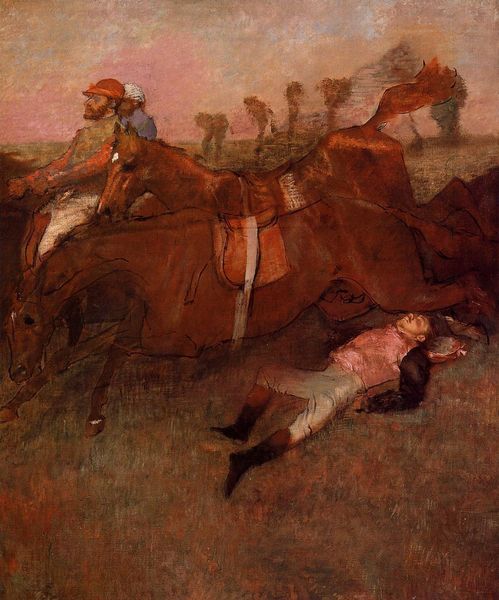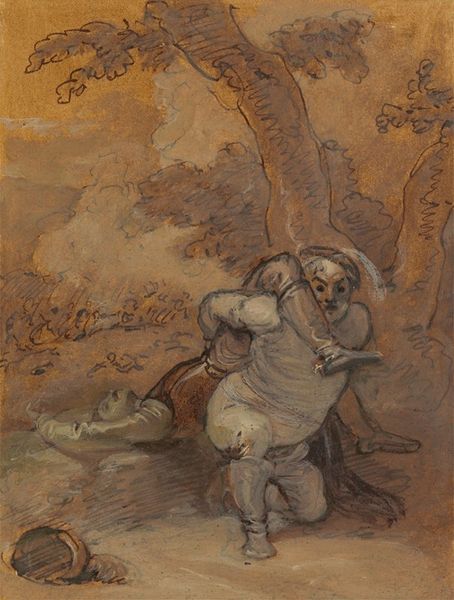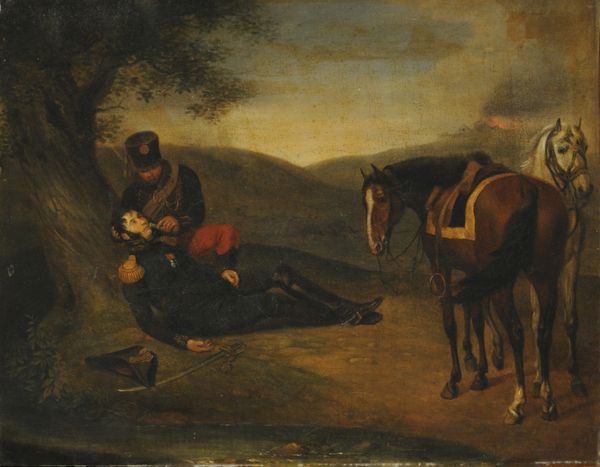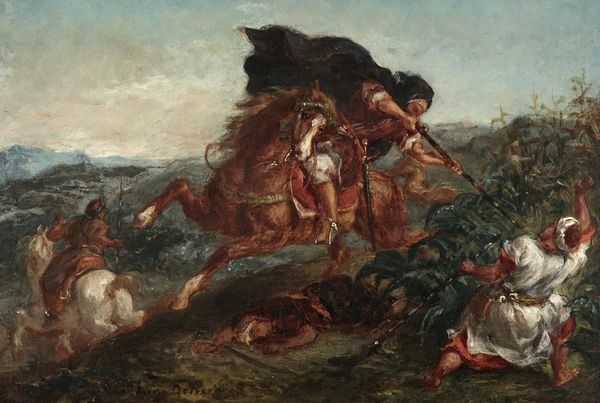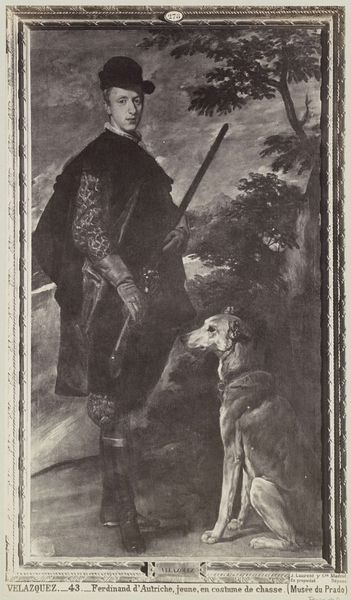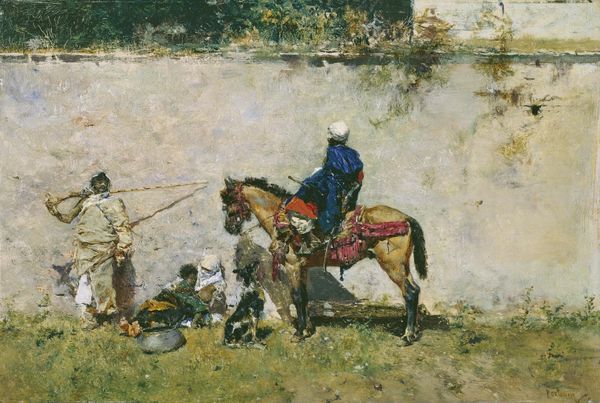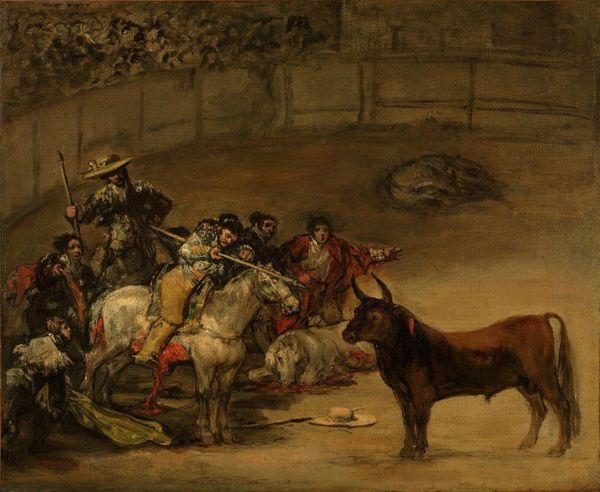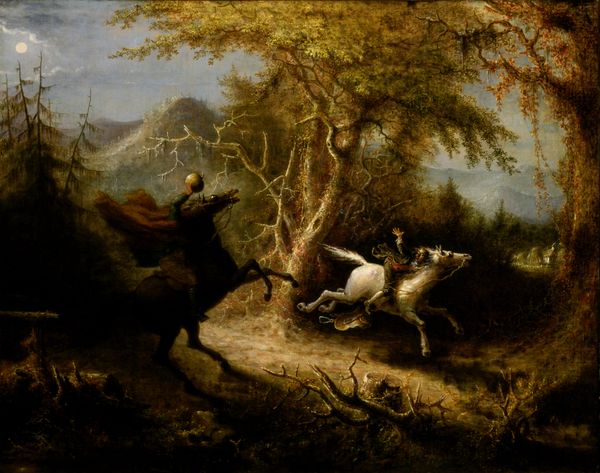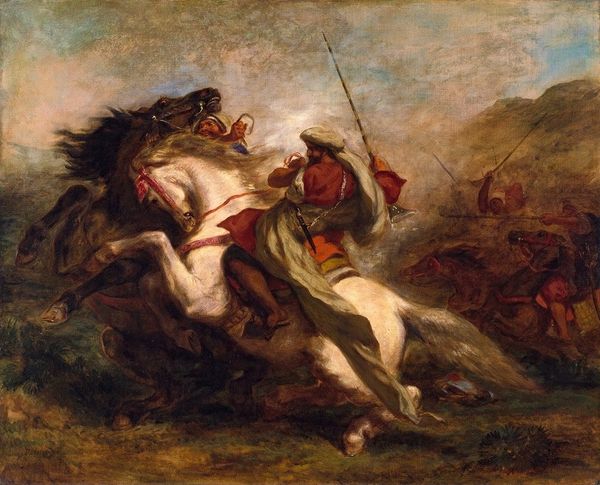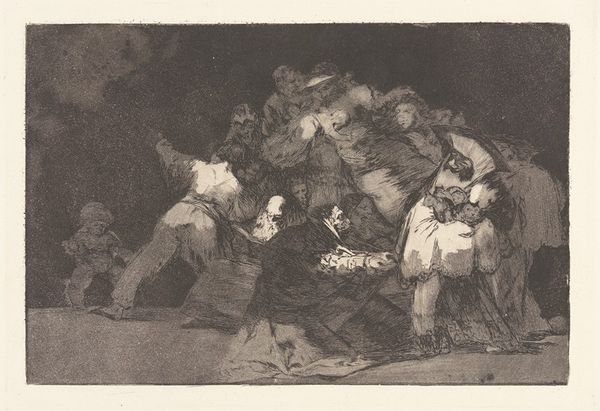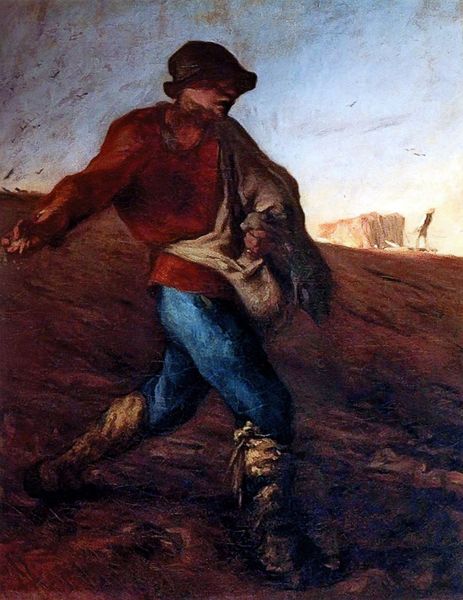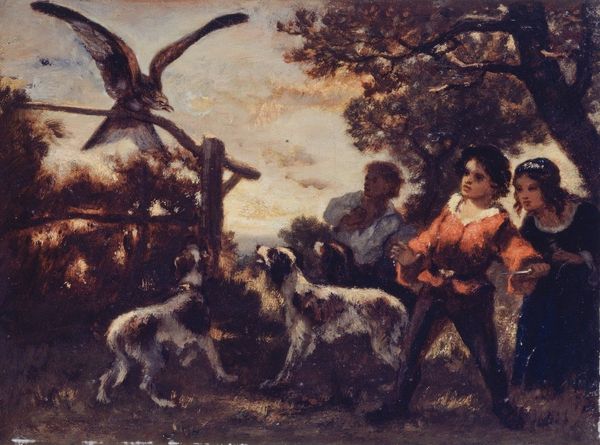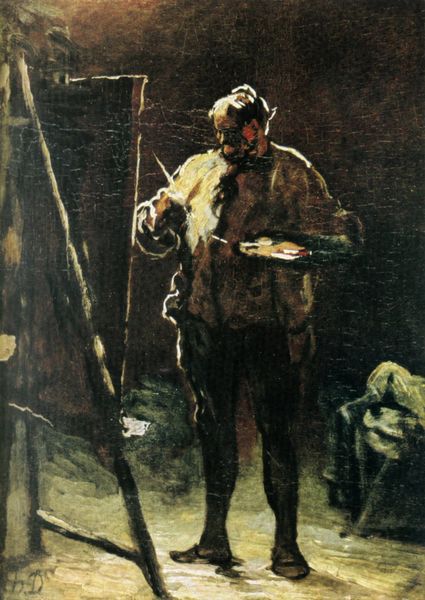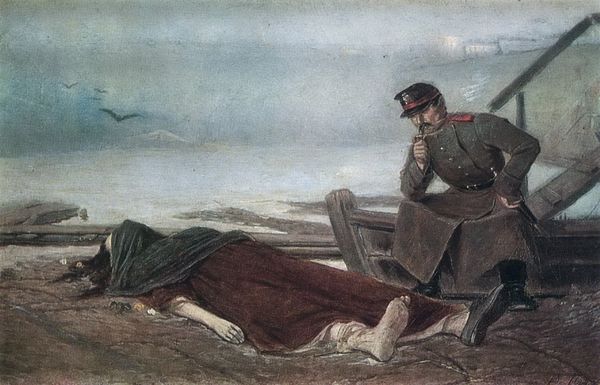
painting, oil-paint
#
painting
#
oil-paint
#
landscape
#
figuration
#
oil painting
#
romanticism
#
genre-painting
Dimensions: 18.5 x 25 cm
Copyright: Public domain
Curator: Carl Spitzweg's "The Fisherman," created around 1850 with oil paints, presents us with a scene of serene, albeit murky, tranquility. Editor: Yes, tranquil is a word that comes to mind. The brown-heavy palette creates a sort of somber mood, almost like a secret ritual being performed in the heart of nature. The dark colours, and even the impasto, weigh heavy in the landscape. Curator: Spitzweg was quite focused on craft here. We can analyze his skillful build-up of paint, noting how it enhances the almost palpable sense of solitude. What’s interesting is thinking about where he acquired his pigments. Where did his canvas come from? Whose labor contributed to the piece before Spitzweg applied his brush? Editor: Right. This painting really evokes a deeper understanding of labor and class dynamics embedded in artistic creation. What were the lived realities of someone whose profession, as is displayed here, depends on environmental stewardship? Curator: Indeed. The artist seems preoccupied with capturing the texture of foliage and earth—there is some textural mastery happening here, particularly when you look closely at the details. It brings forward this fascination with making. Editor: I agree, but I can't ignore the social context. I see not just a lone fisherman, but a meditation on self-sufficiency, a commentary, perhaps romanticized, of escaping the complexities of society in favour of an almost mythical bond with the land. Where does our own cultural romanticizing of rural landscapes contribute to its significance here? Curator: I see your point about this rural fascination. What’s compelling to me is to ponder the social reality of image making at this time, particularly, with the Industrial Revolution on the rise. How are works like this implicated, consciously or not, in an active rejection of this rising economy? Editor: And further, what impact do such idealized portrayals have on social consciousness, masking labor issues by romanticizing the very people from which resources are extracted? Curator: That's where you tease out fascinating aspects that transcend materiality. Thanks for joining me on this journey! Editor: Thank you. It has been enlightening to ponder how brushstrokes of the past inform our dialogues today.
Comments
No comments
Be the first to comment and join the conversation on the ultimate creative platform.
